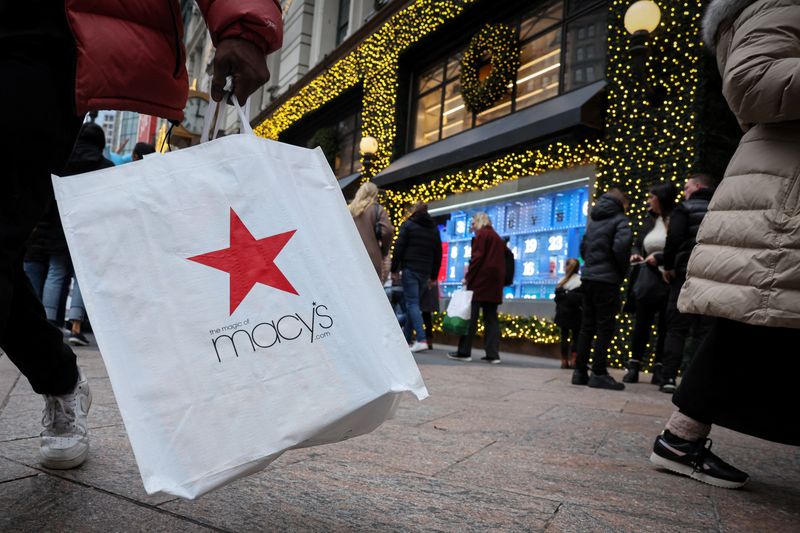By Savyata Mishra
(Reuters) -Macy's shares jumped 14% on Monday after investors Arkhouse Management and Brigade Capital sweetened their take-private bid over the weekend, valuing the U.S. department store operator at $6.58 billion.
They raised the offer price to $24 per share from $21 for the stake they do not already own, representing a 38% premium to Macy's (NYSE:M) closing price on Dec. 8 when deal talks first emerged.
The retailer's shares, which have lost 10% of their value so far this year, were hovering a little below $21, with the investor group leaving the door open for a higher bid.
Macy's is yet to open its books to the bidders as it was reviewing the new offer after rejecting in January a prior bid from Arkhouse on concerns around deal financing and valuation.
The real estate-focused investing firm has said it has identified global lenders who will commit to financing the deal if due diligence was granted.
That would make Macy's board consider the offer "more seriously", Citi analyst Paul Lejuez said.
The company has struggled to maintain its sales growth and profitability due to competition from cheaper physical and ecommerce offerings, as well as a value-based shopping pattern due to elevated inflation.
"Macy's should cooperate with the investment group and pursue a possible sale. If it refuses to do so, it runs the risk of a hostile takeover," said David Swartz, an analyst with Morningstar Research.
Arkhouse, which has an economic exposure of 4.4% to Macy's along with its affiliates, has piled pressure by nominating nine director candidates with retail, real estate and capital markets experience to the company's 14-member board.

The company had last week unveiled a turnaround plan that included cutting store counts and job roles, while aiming to revive sales at its luxury labels Bloomingdale's and Bluemercury by improving merchandise and adding more staff.
Macy's forward price-to-earnings multiple, a common measure for valuing stocks, is 6.73, lower than industry peers, including Kohl's (NYSE:KSS) and Nordstrom (NYSE:JWN) that have a P/E ratio of 10.36 and 10.28, respectively.